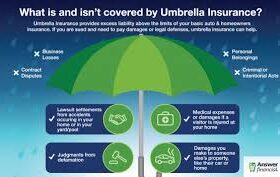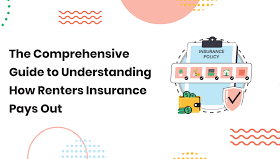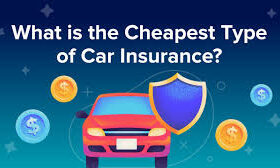If you want to reduce, pause and cancel car insurance to which you subscribed then this is the content you should be more interested in because we took our time to explain it here.
If you have a car that’s just sitting around and you never drive it, now might not be the best time to keep paying for car insurance that you don’t need.
You might be wondering if you should cancel your policy altogether or just put it on hold temporarily.
If you have a car that you’re not using and want to save money on insurance, putting your coverage on hold can help. But it’s not as simple as stopping a streaming service like Netflix. The options available to you might depend on why you’re not using the car or if you still owe money on it. If you still use the car occasionally, it’s important to keep it insured to stay legal and protected financially.
If you’re struggling financially because of COVID-19, insurance companies and other financial institutions might be willing to work with you.
Here are the main options to consider for your auto insurance:
1. Ask for a payment delay or plan related to COVID-19.
2. Lower your coverage.
3. Suspend your coverage temporarily.
4. Take yourself off the policy.
5. Cancel the policy altogether.
Reducing Your Car Insurance Coverage
Putting your car insurance on hold means you won’t have to pay for insurance you don’t need while your car is sitting idle.
By keeping your insurance active, you avoid having a coverage gap, which could make your rates go up later.
If you keep comprehensive insurance, your car will still be protected against things like fire, damage from animals, vandalism, and theft, even if you’re not driving it.
Also, If you reduce your coverage too much, your car might not be usable for anyone else to drive.
You’ll still have to pay for the insurance you decide to keep.
If you have a car loan, you’ll probably need to keep certain coverages as required by the lender.
If you can’t suspend your policy, cutting back on coverage is another option to avoid cancelling it altogether. This helps prevent your insurance from being labelled as lapsed, which could lead to higher rates later. But before making changes, check with your insurer to be sure.
You can start by reducing your auto insurance to just the coverage required by your state. Most states require liability insurance, and some also mandate uninsured/underinsured motorist coverage, personal injury protection, and/or medical payments coverage.
Consider keeping or adding comprehensive insurance if you’re storing your vehicle while not using it. This coverage helps pay for damage to your car from things like theft, vandalism, or falling objects. Usually, you have to buy comprehensive along with collision coverage, but your insurer might let you keep a comprehensive-only policy, especially if you’re storing your car long term. However, if you have a car loan, your lender may require both comprehensive and collision coverage.
If your insurer allows you to keep comprehensive and drop everything else, including liability insurance, you may need to contact your DMV and file an affidavit of non-use. This is because your car won’t have enough insurance for anyone to drive it legally.
Pausing Your Car Insurance Coverage
Even if you’re not driving your car, it will still be protected against things like fire, damage from animals, vandalism, and theft.
Your car will still have the insurance required by law to be driven legally.
By making these changes, you can avoid a coverage gap, which could lead to higher rates later on.
Also, keep in mind that you will still need to keep paying for insurance while you’re away.
When you return home for at least 30 days, you’ll need to add yourself back onto the policy.
Instead of changing your coverage, you might consider temporarily taking yourself off a family car insurance policy. This could be a good idea if you’re going away and won’t be driving the car, but others in your household will still need to use it.
Taking yourself off the policy could save you money if you’re considered a riskier driver than the others on the policy. This is because removing yourself reduces the chances of a crash involving the car. However, if it doesn’t save you money, there’s not much point in removing yourself, and it’s probably easier to just stay on the policy.
Keep in mind that if you’re not leaving and still live with other drivers on the policy, you might not be able to do this. Many insurance companies require all drivers at the same address to be on the policy or specifically excluded from it.
It’s important to note that removing yourself from the policy isn’t the same as being an excluded driver. If you’re just not listed on the policy, you can still drive the car. But if you’re excluded, you’re not supposed to drive the car, and you might need to show proof of other insurance to be excluded.
Cancelling Your Car Insurance Coverage
You won’t have to pay for insurance while your car is not being used.
You can cancel your car insurance no matter which company you’re with.
Also, if you cancel your car insurance, the vehicle won’t be covered if someone wants to drive it.
Without insurance, the vehicle won’t be protected against issues like fire, animal damage, vandalism, or theft.
Cancelling your insurance means you’ll have a coverage gap which could lead to higher rates in the future.
People with car loans usually can’t cancel their insurance.
If you’re not using your car, you could think about cancelling your auto insurance and getting a new policy when you’re ready to drive again. But if you have a car loan, cancelling probably won’t be an option because your lender will likely want some insurance on the vehicle.
Before cancelling, check with your DMV. Some states might require you to fill out paperwork, like an affidavit of non-use, to officially take the car off the road and drop the required insurance.
The main downside to cancelling is that it creates a gap in your insurance history. People who have been continuously insured usually get better rates than those with gaps in coverage, who are often considered “high-risk drivers.”
There’s no one-size-fits-all insurance option. If you decide to keep your coverage, having a good payment history can help you get better rates in the future.





